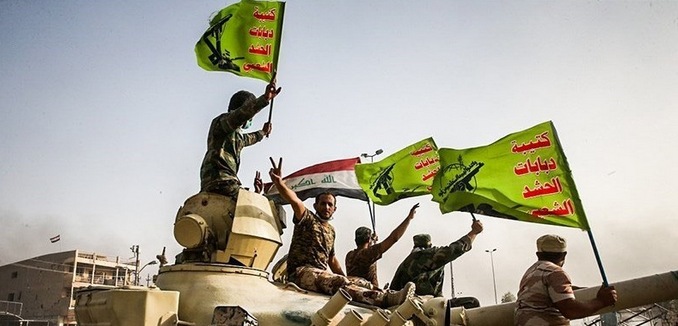Iran-backed Shia militia forces have been accused by a parliamentarian of the Kurdistan Regional Government (KRG) in the autonomous region in northern Iraq of engaging in “flagrant injustice” toward the Christian minority, Ben Cohen reported in The Algemeiner on Monday.
Wahida Yaqo Hormuz, a Christian representative in the Kurdish parliament, said she had alerted international human rights organizations and the Vatican that Shia militia groups were engaging in grave violations against the Christian population and were subjecting them to “Shia-ification.”
“This is a flagrant injustice done to Christians,” Yaqo Hormuz said, commenting on reports that the Hashd al-Shaabi militia, an umbrella group of armed Shia forces supported by Iran, was preventing the return of Christians to the Nineveh Plains.
The region, where the northern city of Mosul is located, was conquered by the terrorist organization Islamic State in the summer of 2014 and was retaken by Iraqi government forces, supported by Kurdish Peshmerga units, in July of this year.
Most Christians displaced by Islamic State sought refuge in the Kurdistan region, which is widely regarded as the most tolerant place in Iraq for religious minorities. The KRG has also appointed a Jewish Representative who is tasked with reviving Jewish life and history in the region.
But, according to a Christian refugee, interviewed by the Kurdish news outlet Rudaw, Iran-backed Hashd al-Shaabi forces are now persecuting those Christians—once a population of 40,000—after they seized more than 50 percent of the territory liberated from Islamic State by the Kurds.
“The situation of these areas is getting worse day by day,” the refugee, Amir Yaqu, said. “The Hashd al-Shaabi forces are systematically trying to change the Christian demography of these places. They have started to operate sectarian schools in churches and religious centers.”
The community was left shaken, after one school was named after Ayatollah Ruhollah Khomeini, the leader of Iran’s 1979 Islamic Revolution. Christians were “very much upset” by the move, according to Yaqo Hormuz. “We informed our representatives in Kurdistan and Iraq immediately,” she added.
The Hashd al-Shaabi militia, meanwhile, denied on Monday that it had withdrawn from two key regions on the Nineveh Plains. “A number of media outlets talk about the pullout of the Hashd al-Shaabi forces from Zummar and Rabiaa and their surrounding areas, but this news is untrue and baseless,” Ahmed al-Asadi, a representative of the militia, claimed.
Kurdish Peshmerga clashed with Hashd al-Shaabi fighters, supported by elements of the Iraqi army, when the Iran-backed forces attacked Kurdish positions in northern Iraq in October and have since penetrated deep into previously KRG-controlled territory, leading to a sharp deterioration of the human rights situation in the region.
Iran-backed militias have frequently been accused of committing war crimes and other human rights abuses.
In December of last year, Iran-backed militias fighting in support of Syrian President Bashar al-Assad were accused of massacring rebels who had surrendered after the battle for Aleppo.
In August of last year Reuters reported that the militias killed at least 66 Sunnis men who fled the fighting in Fallujah. The militias were also accused of abusing hundreds of other Sunni men.
That same month the Kurdish broadcaster Rudaw reported that the militias had recruited hundreds of child soldiers in violation of international law.
[Photo: Tasnim News Agency / WikiCommons]




